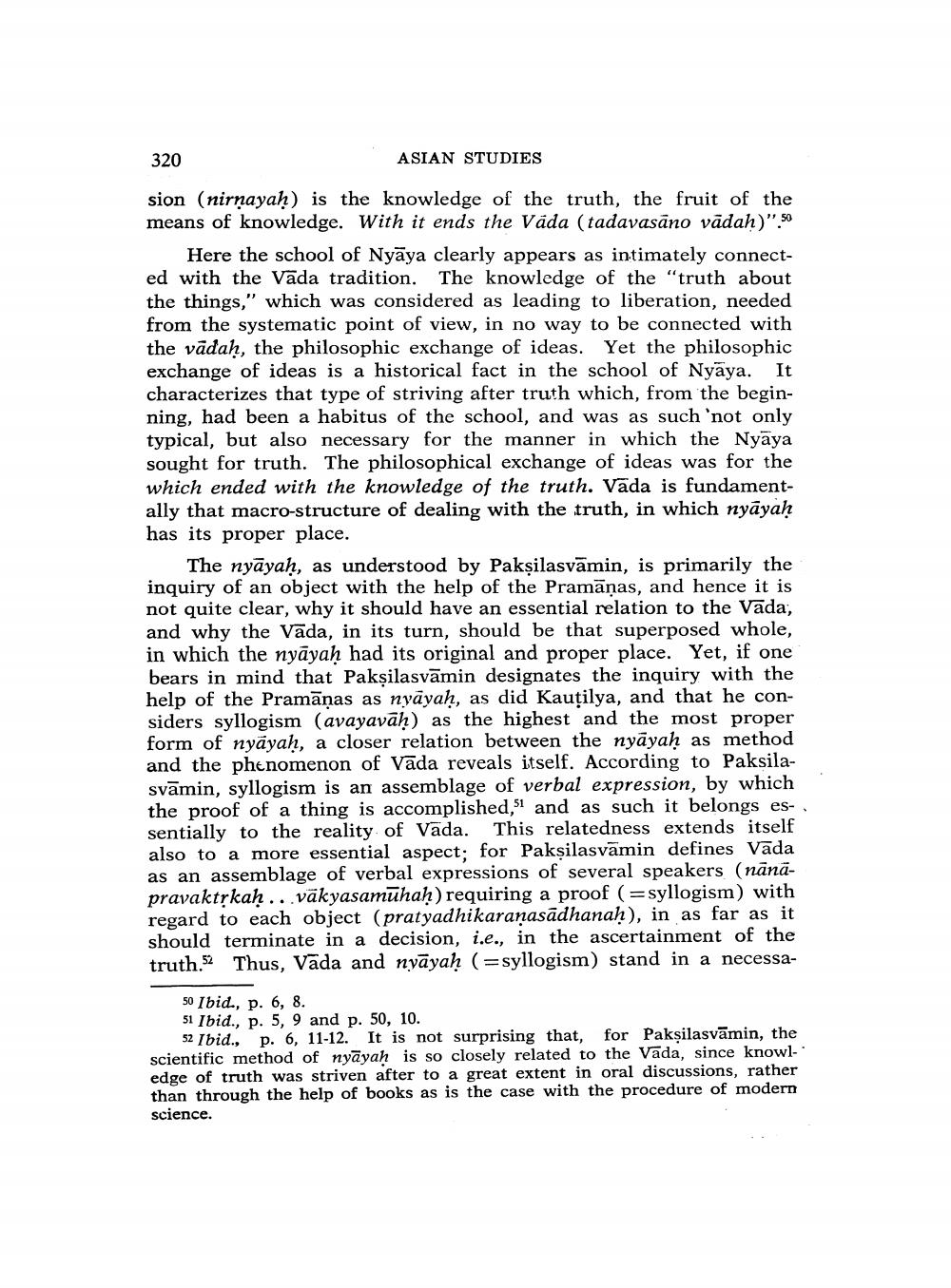________________
320
ASIAN STUDIES
sion (nirnayah) is the knowledge of the truth, the fruit of the means of knowledge. With it ends the Vada (tadavasāno vādah)”.50
Here the school of Nyāya clearly appears as intimately connected with the Vāda tradition. The knowledge of the "truth about the things," which was considered as leading to liberation, needed from the systematic point of view, in no way to be connected with the vādah, the philosophic exchange of ideas. Yet the philosophic exchange of ideas is a historical fact in the school of Nyāya. It characterizes that type of striving after truth which, from the beginning, had been a habitus of the school, and was as such 'not only typical, but also necessary for the manner in which the Nyāya sought for truth. The philosophical exchange of ideas was for the which ended with the knowledge of the truth. Vada is fundamentally that macro-structure of dealing with the truth, in which nyāyaḥ has its proper place.
The nyāyaḥ, as understood by Paksilasvamin, is primarily the inquiry of an object with the help of the Pramanas, and hence it is not quite clear, why it should have an essential relation to the Vada, and why the Vada, in its turn, should be that superposed whole, in which the nyāyaḥ had its original and proper place. Yet, if one bears in mind that Paksilasvāmin designates the inquiry with the help of the Pramāṇas as nyāyaḥ, as did Kautilya, and that he considers syllogism (avayavah) as the highest and the most proper form of nyāyaḥ, a closer relation between the nyāyaḥ as method and the phenomenon of Vada reveals itself. According to Paksilasvāmin, syllogism is an assemblage of verbal expression, by which the proof of a thing is accomplished, and as such it belongs essentially to the reality of Vada. This relatedness extends itself also to a more essential aspect; for Paksilasvāmin defines Vāda as an assemblage of verbal expressions of several speakers (nānāpravaktskah ...väkyasamūhah) requiring a proof (=syllogism) with regard to each object (pratyadhikaranasādhanaḥ), in as far as it should terminate in a decision, i.e., in the ascertainment of the truth.52 Thus, Vada and nyāyaḥ (=syllogism) stand in a necessa
50 Ibid., p. 6, 8. 51 Ibid., p. 5, 9 and p. 50, 10.
52 Ibid., p. 6, 11-12. It is not surprising that for Paksilasvāmin, the scientific method of nyāyah is so closely related to the Vada, since knowledge of truth was striven after to a great extent in oral discussions, rather than through the help of books as is the case with the procedure of modern science.




